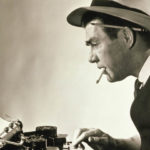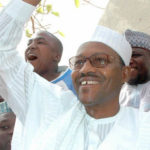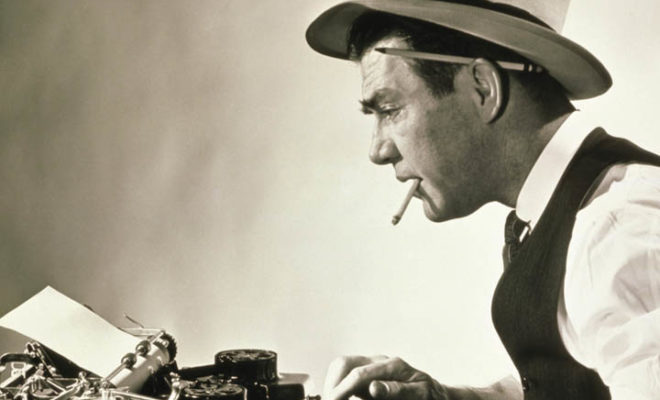How KSA’s music influenced my career – Taiwo Omotunde
The kind of music he performs is a thrilling blend of gospel and juju high-tech that makes his one of the most sought-after band in Ibadan and the Western part of Nigeria. In fact, he bestrides that geo-political zone like a colossus.
Taiwo Omotunde is not only a singer; he is a composer, producer as well as instrumentalist. He resigned from his lucrative banking job to raise his own band. This interview will not only help you know more about Taiwo Omotunde, you will also learn the lessons of success. Excerpts:
Can you start at the beginning – your life, origin, background, and childhood experiences?
My name is Olubanwo Taiwo Omotunde. I was born 48 years ago at Ifaki-Ekiti, Ido-Osi Local Government of Ekiti State into the family of Rev. D. A. Omotunde and Chief Mrs A. A. Omotunde. I grew up in Ifaki. I attended St. Michael’s Anglican Primary School and Ifaki Grammar School, both in Ifaki, for my primary and secondary education, respectively. I grew up with my family members and relatives under the watchful eyes of my father. As my name implies, I am the first of a set of twins. Three females and three males, we were six surviving children of our parents until my twin brother, Olubanke Kehinde Omotunde, passed on in 1989, which makes me the youngest of the family. Growing up in Ifaki was memorable. The rich cultural and social life of the typical Ekiti community would fill any growing child with excitement. Life in the Church also added to the quality of life I lived as a teenager. The harvest thanksgiving services, the weekly choir practices and so on. The school life was also good. I enjoyed growing up.
Can you tell us about your educational and career pursuits till date?
After leaving Ifaki Grammar School in 1981, I worked for three years as a Store Keeper at the Methodist Girls High School, Ifaki-Ekiti. The Principal, Mrs Chopde (an Indian) was kind enough to get me that job. That was my first job experience. I cherish that period of my life. My father had worked earlier in that school as a Principal and later as a part time teacher. Later, I came into The Polytechnic, Ibadan, to study Banking and Finance. I hold an HND in Banking and Finance. I worked at different times with Odu’a Group of Companies as an Industrial Attaché; Methodist Church of Nigeria Headquarters Accounts as a Senior Accounts Clerk; the defunct National Bank of Nigeria as a clerk. I left the bank in 1992. While on leave, I met an Uncle who asked me to assist him in setting up a Finance Company, so I worked briefly at Classman Finance Group as a business executive. I finally left in September 1993 to set up my musical business fully.
As you progressed, what are the uppermost things in your mind to pursue as career?
Initially, I wanted to be a lawyer. I didn’t qualify for admission into the university to study Law. My twin brother, Kehinde, who was living in Ibadan with my elder sister, then counseled that I could come into the Polytechnic to study Banking and Finance. He reasoned that if I could do that, I would be better prepared to write my exams and would hopefully gain admission into any university of my choice to study Law. He knew that working with my School Certificate at the time in Ifaki could make me despondent. He and my brother-in-law made the effort and secured the admission for me. However, the plan changed once I came into the Polytechnic. I developed interest in Accounting, which I didn’t offer at the secondary school level. My orientation changed and I didn’t want to study Law anymore. I was satisfied with being a banker. But then, God’s design brought me into music. Now, music is my life. My main goal is to make a success of my musical career. I believe God to make Taiwo Omotunde a household name for good.
Were you born a Christian or when did you become born-again?
I am born-again. Being born-again means being born from above. Is that not so? It is a spiritual thing. This happens when anyone believes that Jesus Christ is the Son of God; that He died for his or her sins and that he/she accepts Him as Lord and Saviour. The person now consciously yields his life to God, asks for pardon for his/her sin and brings himself under the control of the Holy Spirit. If such a person makes that confession genuinely, the Holy Spirit of God will now carry out an invisible but real operation on the individual’s spirit. The spirit of that person is now renewed. The person is now born-again so that the soul and body of the believer can be transformed. He is granted the power to obey God. He is now God’s own. Sin cannot ride roughshod on him. That is being born-again. Spirit-ruled life is the result. I was raised as a Christian by God-fearing parents. I was born into Christianity. My father was a pastor. My mother was an official of the church and worked actively in the women fellowship. I was always around the church. But then, I grew up in the world as it is. Influences, social pressure, self-indulgence and vices crept in, as it would on anyone who is only religious, but doesn’t have the life of God in the true sense. However, my journey into true spirituality in the knowledge of Christ started when I attended a C.U. Fellowship at the Polytechnic in 1985. I was invited by a friend. I responded to the altar call. But, even then, I didn’t know I was born-again. I gave my life to God many times thereafter (laughs). But now, I know the truth. I am neither under the rule of Satan nor the world, nor the flesh; which is the essence and result of the new birth.
How did you come in contact with music?
In our home in Ifaki, there was a harmonium (a small organ). My father played the organ from time to time. I loved the sound. I was curious to know how it worked. After Baba’s death, I started learning to play the organ seriously. Mama provided me a piano self tutor book called ‘Smallwood Piano Tutor’. She had the book, although she didn’t play the organ. She told me it was a gift to her from my Dad. Anyway, I started learning with the book. In church, the church organist, the late Chief D.O.A. Adetunmbi, was a great church organist and choirmaster. He noticed my ability and started grooming me in church music. He is Senator Olu Adetunmbi’s father. From that point, I started playing the church organ at St. Michael’s Anglican Church. I also was the school organist at IGS and I played the organ during the morning devotion from 1979 to 1981.
Aside this, my elder brother, Segun Omotunde, had a ‘mouth organ’ which he blew whenever he was home during the holidays. He was very good at it. Also in our home, Baba allowed us to play the ‘Gramophone’ and the ‘record player’ on Sunday afternoons. Mama bought many records and we used to play them. We listened to artistes like Irewole Denge, Wale Glorious, Ebenezer Obey, Prince Adekunle, Ishola Adepoju, Salawu Woro, Fela Ransome-Kuti, Jossy Gboye, S.I. Atolagbe, Deyo Suberu, S.A. Olayera, Haruna Isola, I.K. Dairo, among others, on small record disks of 45 rpm. We enjoyed listening to the records. We memorised all the lyrics of those records. I took special interest in the harmony and song delivery method of Wale Glorious and I.K. Dairo. I also noted the construction of Ebenezer Obey’s songs. These must have influenced the depth of my own lyrics and the structure of my sound later. Mama also bought me and Kehinde little drums we played with. All these experiences definitely engraved music in my heart. My experience in the choir also enriched my knowledge of music, especially church sacred hymns and other songs.
Did you attend any training musically?
No; not at all. All I had in form of training was informal and mainly self-discovered and self-developed. God gave me a strange ability to be able to do whatever I needed to do. By merely observing, I could figure out how certain things work. I did not attend a formal school of music. However, I must say that the church and the society taught me music. I learnt in the choir, I learnt while watching our people dance and sing at ceremonies. In any case, I saw my father played the organ; I listened to my mother while she sang with her high-pitched voice. I learnt later that my maternal grandmother was a musician/singer. I am also aware that an elder cousin of mine, Tunde Adefemi, is an accomplished organist. I want to believe that music is also in the genes.
How did it start professionally?
After my OND, I started Industrial Attachment in Ibadan. Kehinde and I now thought of forming a band. He was also music inclined. In fact, he had a National Diploma in Music from The Polytechnic, Ibadan, before he went to Eruwa to study Purchasing and Supply Management. So, we called the band TAKMOT Beats. Because of distance, we couldn’t really get the band to perform. Meanwhile, I was staying with my sister, Tokunbo Adeagbo, and her husband, Prof Tunde Adeagbo, here in Ibadan. I then started following my sister to the Methodist Church, Bodija. It wasn’t long before I joined the choir. Not long after my sister’s family moved to Canada and I moved to live with my Uncle, Dr Femi Abe, who was living then at the back of the church. In the church, I met other young men in the choir, and when I saw their interest in music, I asked them to join me to form a new group. I dropped the name TAKMOT and adopted TATOO Divine Beats; TATOO being the acronym of the five of us who formed the band. Despite my moving to Lagos to work, I continued to report for duty as the organist of the church, and this strengthened the group. Kehinde didn’t mind. And by 1989, Kehinde passed on. I left Lagos and returned to Ibadan. I was shuttling between Ede in Osun State and Ibadan. TATOO was doing well. We released two albums and a video and we were having good bookings to perform at occasions. That was the beginning of my professional career in music. By December 1992, I left the group. And by 1993, I formed my own band, which I called Taiwo Omotunde & The Eternal Band.
Can you share your first studio recording experience?
My first studio experience was actually in 1982 at Iyanda Studio in Ibadan. I cannot even recall where it was. We were brought there by Olatubosun Records. We came all the way from Ifaki to record the album ‘Ó gbèrò’. It was with the Church Choir of St Michael’s Anglican Church led by Mr Abiodun Omooba. That was another man who influenced my life with respect to contemporary church music. He was very good on the guitar and had an excellent vocal power. So, when we arrived at the studio the studio people asked for the keyboardist/organist, and my people proudly pointed to me. I was shown the organ, and alas, it was an electronic organ. Before then I had never seen an electronic organ in my life! But as I said earlier, I just figured out how it would work; and by God’s grace I performed and the recording went very well. That was the first time I met Pa Olatubosun Oladapo. Whenever he sees me, even now, he would say “Oh, Ifaki boy!”
How did your first release come about?
After resignation from my job, I knew I had to work very hard to succeed. A member of my church and a friend of my Uncle, one Engr Akin Elegbeleye, asked me after a church service why I had not released an album. He told me I should record my songs. He really encouraged me. He gave me some money that day and I just thought within me that I should start my album project with the money he gave me. I spoke to one of my friends who seemed to know many things, Muyiwa Faturoti. He instantly told me he knew a studio. He then introduced me to Jide Arowolo of New Covenant Studio, Bodija. It was an 8-Track Tascam studio. He did a good job in producing the album, and I titled it ‘He Reigns’. The one hour album was released November 1994. It had both English and Yoruba tracks. Being my first album, I guess I packed too many songs into it (laughs).
Who are the personalities you met as a result?
Oh, I met a lot of dignitaries through music – royalties, high ranking government officials, captains of industry, eminent personalities and so on.
What runs through your mind when you look back?
Gratitude and thanksgiving to God! This is because if I had failed, I wouldn’t have anything to fall back on. My regular working life in the bank and elsewhere couldn’t fetch me a gratuity or pension. I took a risk at the time I left the bank. It was like jumping into the dark. Looking back now, I am really grateful that the Lord led me aright and has by Himself made a success of this musical business.
How are your releases doing commercially?
In terms of commercial returns, none of my 13 releases has done very well. This is so because the albums were produced and distributed by me. As a result, there was no effective distribution and recovery of proceeds from sales. However, the albums are popular and gaining grounds by the day. I hope to be able to convert this to commercial returns soon. Plans are underway to get a reputable marketing company to take over my works. Once there is effective distribution and marketing system in place, people will have access to my works and naturally the market will respond.
What is your ultimate plan for music?
My plan is to make my genre acceptable to everyone, a song for every occasion. Apart from making a success of my own musical career, I like to contribute my own quota to further developing the Yoruba musical style and make it acceptable globally. We are succeeding already in our project ‘crossover-to-national-recognition’ and we are moving into the new project, ‘crossover-to-international-recognition’. I will, by God’s grace, increase the frequency of album releases and promotional tours and activities globally.
How do you cope combining music with church ministry?
Music is my business calling and church ministry is my own portion of God’s work assigned to me by the Lord. I serve as the Choirmaster of my church and also as a lay preacher. Once anyone is called to do any work in the ministry, he is granted grace and practical ability to perform such tasks assigned to him. He, in the first place, would have been designed with in-built capabilities and tendencies towards the work. He would also receive enablement (anointing) to do it. The point I am making is that I am able to combine my business and my duties in the ministry successfully, by the special ability supplied by the Spirit of God. It is not by my own strength, really.
How do you feel being compared to music legends like King Sunny Ade?
I am not the one comparing myself to someone like King Sunny Ade. I was only a toddler when he became a superstar. No doubt, he is an accomplished musician in every sense of the word. When people now start comparing me with him, I shudder. Well, maybe in terms of enterprise, creativity, industry, determination, dexterity of performance and sincerity of purpose; people may well reason that I take after him. I agree to that extent and I am proud to be rated as such. But to want to put me side by side and shoulder to shoulder with such a man, no. I don’t even like to set up near his stage. I have tremendous respect for him and Chief Commander Ebenezer Obey.
Have you ever conceived being on the same stage with him one day?
Yes. It will still happen. There was a day Yemi Sonde wanted me to perform on KSA’s stage at the Green Springs Hotel, Ibadan, years back, but I left because it wasn’t yet time. I was called on the phone that he was asking that I should come upstage. King Sunny Ade likes to yield his stage to younger artistes. I know him for that. Whenever I attend his shows, I always hide somewhere to watch him perform. I learnt a lot from his style of doing things. Check out his organisation, the stagecraft and control. I got the design of my canopies and bandstand from his. He cannot fathom how much influence he has on me musically. When it is time, it will happen. And it is going to be very soon.
How has the journey been generally?
The journey, though hard, has been bearable for me because of the innate qualities the Lord had graciously endowed me with. Over and above that, God has given me unlimited grace to surmount hindrances and solve otherwise insolvable problems. The journey has been long, but I didn’t feel it. I trust in Him who has called me to this work. Thank God for accompanying me through the hardest times.
How much support do you get from anywhere?
I got help and support arranged by the Lord all the way. At every point of despair, the Lord has provided comfort. The Lord sent people to help me at various points on the journey. I have been an object of God’s mercy. If I needed to buy equipment, for example, the Lord would make me meet someone who would sell on credit. If not for God’s help, I wouldn’t have made it.
What quality do you possess that people don’t know?
The qualities I am endowed with by the Lord are obvious. However, as musician, people have the wrong notion that we should be worldly, frivolous, vain and haughty. Therefore, it is hard for people to reconcile me with preaching or getting serious with the things of God.
What turns you on and off?
I don’t like selfish people who manipulate others to take advantage of them. I also have little patience for mediocrity, hypocrisy and deception. I don’t like what people call ‘show-off’. I cannot tolerate idleness.
How do you relax?
Do I even relax? I am just learning to do that. There is very little time to relax. Once in a while I find time to watch films and ride my bicycle.
What motivates you?
The need to succeed!
Who is your role model?
They are many, depending on the aspect of my life they relate to. My late father, Rev D.A. Omotunde, in every respect; Pastor Sola Kolade of Vine Branch in spiritual matters; General Oladayo Popoola (rtd) in industry and organisation; King Sunny Ade and Chief Commander Ebenezer Obey in music.
Who are your mentors?
The Lord is my mentor. I have the benefit of the Holy Spirit who teaches me strategies not common to man. He beams into my mind ideas which cannot make sense to humans and yet they work.
What is your style statement?
Pursue with vigour God’s will for my life and attain it. That is the essence of living.
What is your perception of love?
My perception of love derives from its components: mercy, compassion and goodwill.
Where do you hope to be (musically) in the next five years?
By God’s grace, I intend to be at the very top of the musical chart of all radio stations across the world.
Tell us about your new release.
Right now, we are set to release ‘Keresi De’ video for Christmas. The audio was released in 2012. We are also set to release ‘Agbo Ijó’ (Dance Floor). It is a new one which will actually get people into their dancing shoes and onto the dance floor.
What motivates you in composing seasonal album like ‘Keresi De’.
I am of the opinion that our Christian tradition should be preserved. Christmas especially should be celebrated so that people can understand the incarnation. If people cannot relate to Christmas, they cannot comprehend the resurrection and ascension. I discovered that the truth of these divine events as related to Jesus Christ is embedded in the Carols. In addition to my own compositions in ‘Keresi De’, I presented the traditional Christmas Carols in danceable style, which will appeal to our people and at the same time tell the story of the annunciation and incarnation. It is my own contribution to preserving the Christian liturgy. And as an Ifaki boy who grew up there, Christmas is more than an ordinary celebration. We attended carols services, ignited the ‘bisco’ lights and other fireworks, ate rice and chicken and wore new family uniform at Christmas. The whole town was always agog with the end-of-year festivities. These are still part of me and I find it expressed in my music.
Which musical/professional associations do you belong to?
I am a member of the Association of Juju Musicians of Nigeria (AJUMN), Ibadan zone, and also a member of the Performing Musicians Employers Association of Nigeria (PMAN), Ibadan zone.

 Top Four Tips for Getting Your Assignments Done on Time at University
Top Four Tips for Getting Your Assignments Done on Time at University  Adaobi Nwaubani: Humorous writer, journalist
Adaobi Nwaubani: Humorous writer, journalist  President-Elect: Nigerians express expectations from incoming govt
President-Elect: Nigerians express expectations from incoming govt 